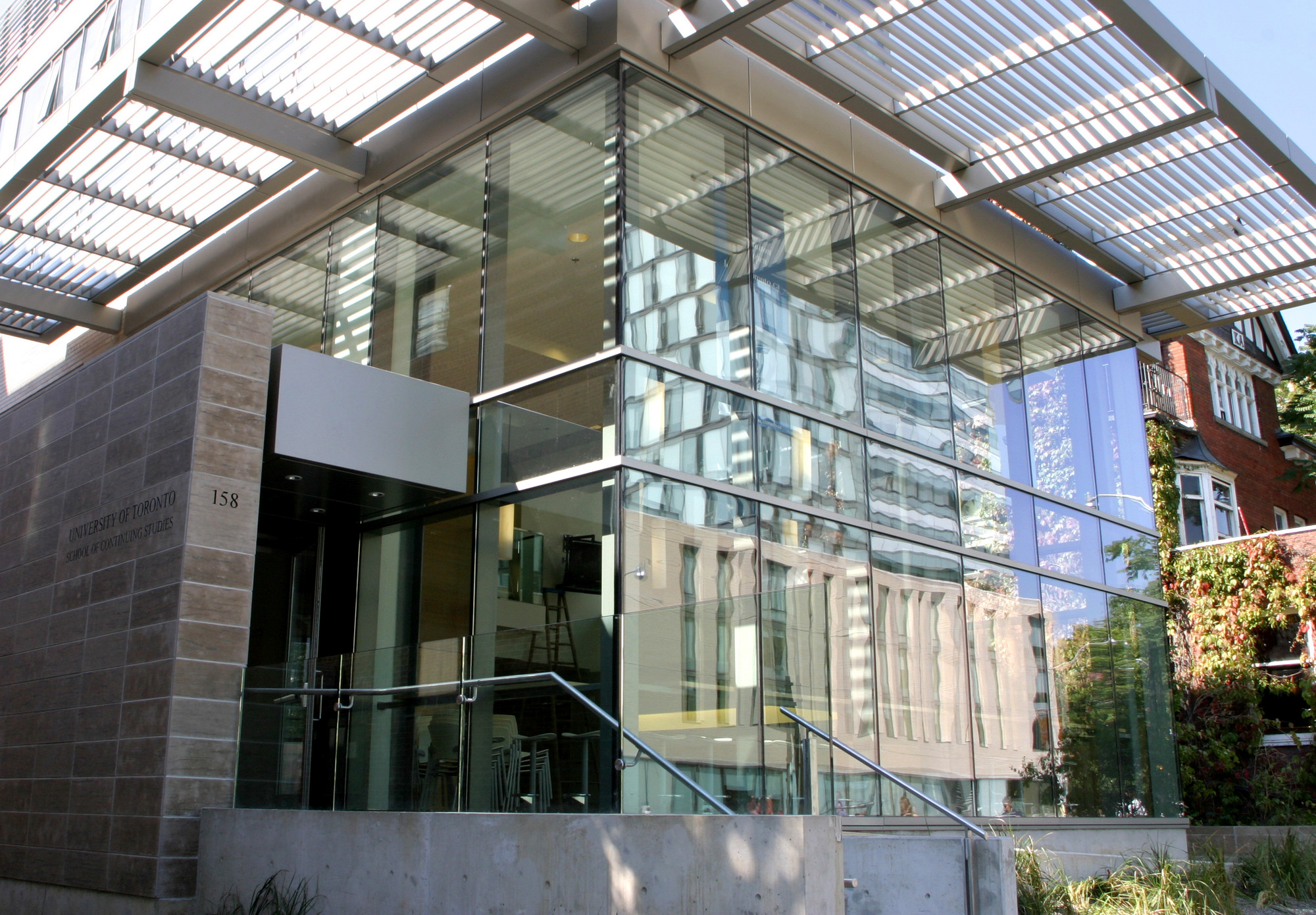At the heart of the University of Toronto’s downtown campus sits a modern yet unassuming four-storey building. Behind its glass facade lies a powerful engine of opportunity that attracts 30,000 learners a year seeking to upgrade their skills and acquire new ones.
An integral part of U of T, the School of Continuing Studies reflects the university’s extraordinary breadth and depth of scholarship by offering more than 600 courses in a variety of fields. These courses are taught by gifted instructors to people across the Toronto region (and, increasingly, to people online around the world) who wish to continue learning, regardless of age.
Enrolment at the school has more than doubled in the past seven years and, according to an Environics survey, 97 per cent of learners say they’d recommend the school to others – a result that Marilynn Booth, the school’s dean, credits in large measure to the quality of the school’s instructors and to a course list that’s laser-focused on learners’ needs.
A remarkable asset for the university, the school also serves an important function within the city’s growing immigrant communities. Onik Hoque, for example, arrived in Toronto from Bangladesh with a business degree but could only find clerical work. Through the school, he took professional courses that enabled him to land a job as a financial analyst.
Some 75,000 immigrants to Canada each year choose to settle in the Toronto region. Most, like Hoque, hold a degree from their home country but are unable to secure employment in their chosen field. This amounts to a massive loss of economic potential for Canada, estimated at $11 billion a year. Helping people like Hoque achieve their dreams helps Toronto – and Canada – succeed.
And it’s not just new Canadians who benefit from the school’s unique courses and certificate programs. Many learners, U of T alumni among them, enrol to pursue an interest, such as creative writing or art history. Others wish to fill gaps in their skill set so they can switch careers. Rapidly advancing technology in most fields means that even those who stay in one job must update their skills on a frequent basis. As Booth puts it: “You have to have your head in the sand right now if you think you can’t keep learning!”
The school takes a highly proactive approach – closely monitoring job trends to create courses in burgeoning fields, and retiring offerings that are no longer relevant. This year alone, 30 out of 80 certificate programs are either new or significantly enhanced. Booth and her staff also work with more than a dozen professional associations to match the skills taught through the school’s certificate programs to those that employers desire.
By virtue of being highly market-focused, the school acts as a test bed for educational innovation. It offers one-third of its courses online, so learners can take them whenever and wherever they choose. And hybrid course options combine online and in-classroom instruction so learners can meet their peers and build new networks of like-minded individuals.
The school recognizes that people are busy with work and family responsibilities. Its courses are short and modular, so learners can put together the curriculum that suits them best, and apply their knowledge sooner. Arash Zarrine-Afsar, for example, an entrepreneur who had already earned a PhD at U of T, found specific courses that enabled him to devise a successful business strategy for his startup without having to take a full business degree.
This June, some 13,500 U of T students crossed the stage at Convocation Hall to receive their degree. As they reflect on their achievement, we encourage them – and, indeed, all alumni – to follow a path that keeps learning central to their lives. While convocation may mark the end of full-time academic study, it can also herald the beginning of a new relationship with the university through the School of Continuing Studies. Classes are offered at all three campuses, and graduating U of T alumni receive their first course for free. Who knows what opportunities could arise?
Sincerely,
Meric Gertler
Recent Posts
U of T’s 197th Birthday Quiz
Test your knowledge of all things U of T in honour of the university’s 197th anniversary on March 15!
Are Cold Plunges Good for You?
Research suggests they are, in three ways
Work Has Changed. So Have the Qualities of Good Leadership
Rapid shifts in everything from technology to employee expectations are pressuring leaders to constantly adapt






